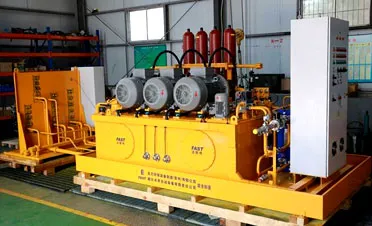Aluminum Die Casting Techniques for Efficient Production and Enhanced Performance
The Advantages and Applications of Aluminum Die Casting
Aluminum die casting is a highly efficient manufacturing process that allows for the production of intricate and lightweight components with exceptional precision and surface finish. This technique has gained immense popularity across various industries due to its ability to produce high-quality aluminum parts at a rapid pace. In this article, we will explore the benefits and applications of aluminum die casting, emphasizing its significance in modern manufacturing.
What is Aluminum Die Casting?
Aluminum die casting involves forcing molten aluminum into a mold cavity at high pressure. The process begins with the melting of aluminum alloy in a furnace, followed by injecting the molten metal into a steel die. The die, designed to provide intricacy and detail, cools rapidly, allowing the aluminum to solidify and take the shape of the mold. After cooling, the die is opened, and the finished part is ejected.
Benefits of Aluminum Die Casting
1. Precision and Complexity One of the standout features of aluminum die casting is its ability to create complex geometries with high dimensional accuracy. Parts can be produced with intricate designs, thin walls, and tight tolerances that would be challenging to achieve using other manufacturing methods.
2. Lightweight Aluminum is naturally lightweight, making die-cast aluminum parts an excellent choice for industries where reducing weight is crucial. Applications in the automotive and aerospace sectors particularly benefit from the reduced weight, leading to improved fuel efficiency and performance.
3. Cost-Effectiveness Although the initial setup costs of die casting can be relatively high due to the need for molds, the overall cost per unit decreases with higher production volumes. This makes aluminum die casting a cost-effective option for mass production, especially for complex parts.
4. Surface Finish Components produced through aluminum die casting have a superior surface finish, often reducing or eliminating the need for additional machining or post-processing. The smooth surface characteristics enhance both aesthetics and functionality.
5. Recyclability Aluminum is one of the most recyclable materials available. The aluminum die casting process can utilize recycled aluminum, helping companies minimize their environmental footprint. This recyclability contributes to sustainability and cost savings in raw materials.
aluminum die casting

Applications of Aluminum Die Casting
Aluminum die casting finds applications across various industries, thanks to its versatility and the benefits it offers
- Automotive Industry Die-cast aluminum components are widely used in the automotive sector for producing parts such as engine blocks, transmission cases, and housing for electronic systems. The lightweight nature of aluminum helps manufacturers meet stringent fuel efficiency regulations while providing the durability needed for automotive components.
- Aerospace Industry In aerospace, aluminum die casting is critical for creating lightweight parts that require high performance under extreme conditions. Components such as brackets, housings, and structural elements are often fabricated using this process, contributing to the overall efficiency of aircraft design.
- Consumer Electronics Companies in the consumer electronics field utilize aluminum die casting to produce enclosures, heat sinks, and structural components. The attractive surface finish of die-cast parts also enhances the aesthetic appeal of electronic devices.
- Industrial Machinery Various industrial machines and equipment benefit from die-cast aluminum parts, which are used for housings, components, and structural elements. The durability and resistance to corrosion make aluminum die casting suitable for harsh industrial environments.
- Medical Equipment In the medical industry, aluminum die casting is employed for producing precise and reliable components for medical devices and instruments. The lightweight and biocompatible nature of aluminum further emphasizes its relevance in healthcare applications.
Conclusion
Aluminum die casting is a remarkable manufacturing process that combines precision, cost efficiency, and versatility. Its applications across diverse industries highlight the importance of this technique in meeting the demands of modern manufacturing. As technology advances, the role of aluminum die casting is expected to expand, leading to even more innovative solutions in design and production. Whether in automotive, aerospace, or consumer goods, aluminum die casting stands out as a key player in the future of manufacturing.
-
OEM Sand Cast Pump Valve Fittings - Baoding Hairun | Precision Engineering, CustomizableNewsJul.30,2025
-
OEM Sand Cast Pump Valve Fittings - Baoding Hairun Machinery And Equipment Trading Co., Ltd.NewsJul.30,2025
-
OEM Sand Cast Pump Valve Fittings - Baoding Hairun Machinery And Equipment Trading Co., Ltd.NewsJul.30,2025
-
OEM Sand Cast Pump Valve Fittings - Baoding Hairun Machinery|Precision Engineering&Fluid ControlNewsJul.30,2025
-
OEM Sand Cast Pump Valve Fittings - Baoding Hairun Machinery And Equipment Trading Co., Ltd.NewsJul.30,2025
-
OEM Sand Cast Pump Valve Fittings-Baoding Hairun Machinery And Equipment Trading Co., Ltd.NewsJul.30,2025















